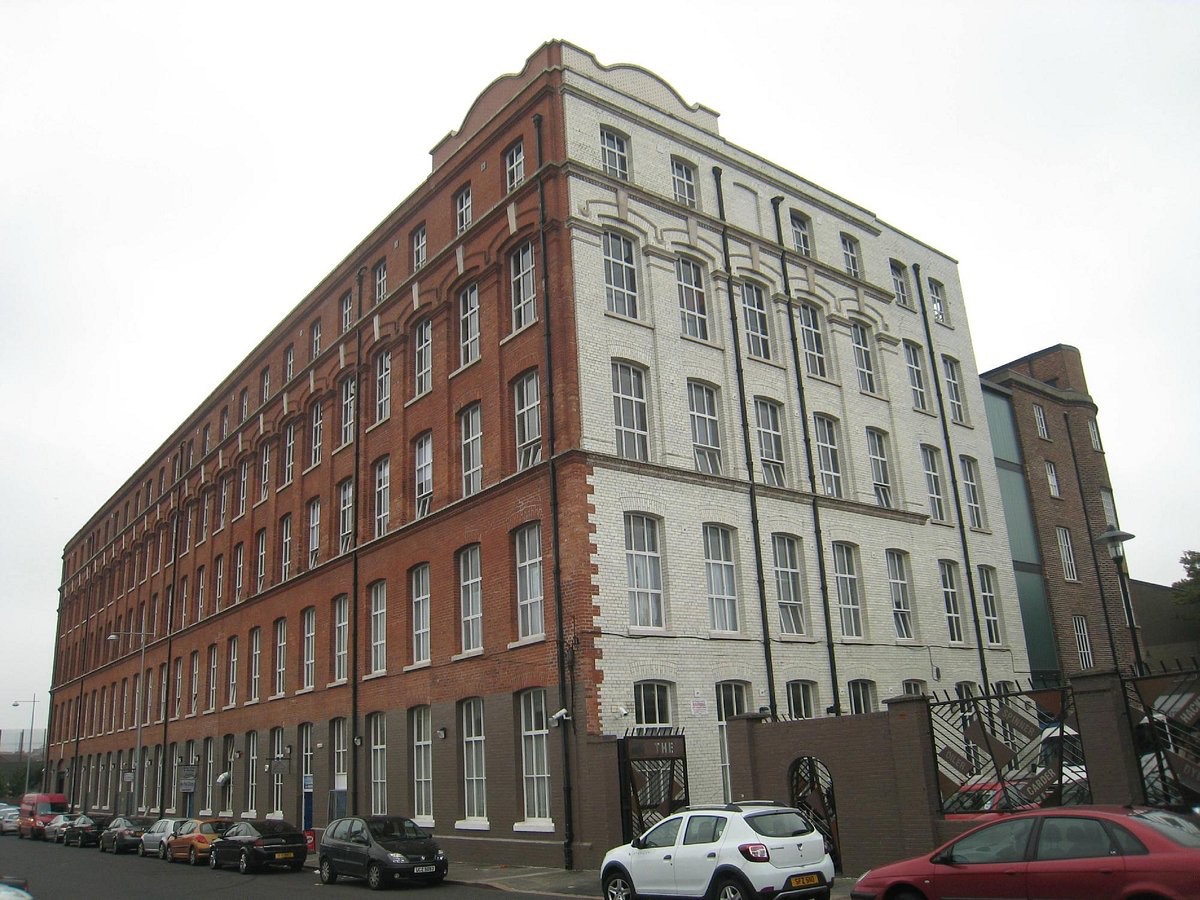
By Gerry Adams (for Leargas)
Conway Mill has been at the heart of west Belfast for over almost 200 years. First as a hard place of work for generations of local people, mainly women, and then as a community hub providing education and employment opportunities. Last week the Mill celebrated its 40th birthday promoting, supporting and facilitating small indigenous economic enterprises, and providing adult education facilities
Conway Mill was built in 1842, in the decade of An Gorta Mór when thousands fled hunger across Ulster and the West, and came to Belfast seeking work and shelter. Conway Street Mill was one of many flax mills across Belfast. Living and working conditions were dreadful. Hours were long and child labour was prevalent. Workers had no rights. They were hired and fired at the whim of employers.
Following partition many of these hardships as well as the use of sectarianism and segregation were reinforced by the Unionist regime. Life was hard for working people including working class Protestants. In the small back to back streets around Conway Mill overcrowding and poverty were endemic and discrimination against Catholics was widespread. The situation was made worse by the pogroms of 1969 which saw some of the streets and Mills in and around Conway Mill destroyed. By 1970 many of the Mills, including Conway Mill were lying derelict.
In the early 1980s Tom Cahill came to me with an idea for a unique and innovative project for west Belfast. Tom proposed that Conway Mill should be bought and turned into a community enterprise project providing education, self-help and local employment opportunities. Tom deserves great credit for his vision and foresight. A small businessman himself he could legitimately have developed the Mill in his own interests. I don’t think that even entered his head. Tom’s interest was in this community and its citizens.
We organised a management committee which included many well known local republican and community activists, like Frank Cahill, Fr. Des Wilson, Liam Burke, Alfie Hannaway, Jimmy Drumm, Jean McStravick, Sean O’ Neill, Tom Cahill & Colm Bradley.
In 1982 Springhill Community House opened the education floor in the Mill. Noelle Ryan, Elsie Best and other amazing women played pivotal leadership roles. Making it habitable and usable took a great deal of effort. Halla na Saoirse (Freedom Hall) was frequently used for the staging of plays written by local people, including Fr Des. It was also used for debates, conferences, and occasionally for press conferences by Sinn Féin. Some of the most important press conferences during the early days of the peace process were held there.
A crèche was established and staffed by ACE (Action for Community Employment) workers and teachers and tutors were provided by the Workers Educational Association (W.E.A.) and the Ulster Peoples College.
Regrettably Conway Mill became a target for the British state. After the Mill hosted a community led public enquiry into the killing of a young man, John Downes, by a plastic bullet fired by the RUC in August 1984 the Mill was targeted for political vetting and the crèche lost its funding and workers. Businesses and community organisations were told that they would be refused funding if they moved into the Mill.
However the management refused to be coerced or intimidated and continued to fundraise and to develop the Mill. In this they were enormously helped by friends in the USA.
Following the West Belfast and Greater Shankill Task Force report the Mill received substantial funding for regeneration, including from the Office of First and Deputy First Minister.
The official opening of the refurbished Conway Mill in November 2010 was a victory for the determination, vision and courage of that first Management Committee in the difficult years of the 1980’s and all of those who have taken up that task since then.
Along the way, we have lost some who were with us at the start. We are deeply indebted to them all. The story of Conway Mill is the story of this community and of the great sense of solidarity and never giving up that exists in west Belfast. So, well done to all of you who are celebrating 40 years of Conway Mill.
![[Irish Republican News]](https://republican-news.org/graphics/title_gifs/rn.gif)
![[Irish Republican News]](https://republican-news.org/graphics/title_gifs/harp.gif)

